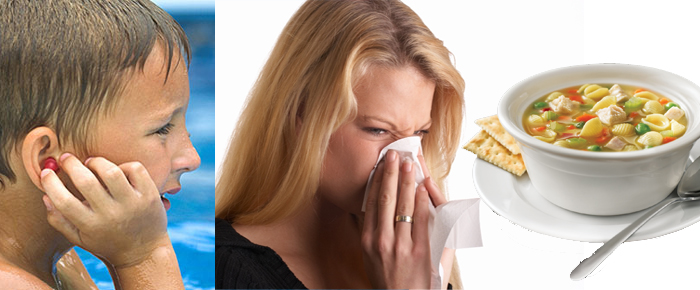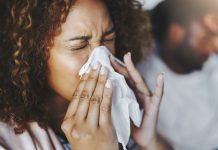
Hey Dr. Kadile, my son frequently gets ear infections after being in the pool for awhile. Will he have to get tubes for his ears?
Kathy, Desert Hot Springs
Kathy, your son most likely has frequent outer ear infections (otitis externa), commonly know as “swimmers ear”. The outer ear is the area from the eardrum to the outside of the head. The infection is caused by water that stays in the ear commonly after swimming. The water contains bacteria that invade the skin of the ear canal. Most cases of swimmers ear can be treated with antibiotic ear drops. An important part of the treatment is to keep the affected ears dry, so no more swimming until the infection has fully cleared. Plugging the ear canal with a cotton ball coated in vaseline will help keep the ear dry when bathing. The placement of tubes in the ear is a form of treatment for chronic middle ear infections (otitis media), NOT treatment for outer ear infections.
Dr. Kadile, The recent winds have really flared up my allergies. What is the best medication you recommend for allergies?
Linda, Desert Hot Springs
Linda, the high winds kick up all sorts of nasty allergens, dust, sand and irritants which can cause the itchy, watery eyes, congestion, runny nose, cough, sore throat and sneezing associated with allergic rhinitis. Staying well hydrated, supplementing with vitamin C, vitamin D and omega 3 fish oils can help boost your immune system and help reduce allergy flare ups. Irrigation of the nasal passages with an over the counter neti pot can help reduce the congestion and runny nose associated with allergy symptoms. Over the counter (OTC) medications, usually antihistamines, can be effective in the prevention and treatment of symptoms, but can have side effects, commonly drowsiness. Make sure you read the labels of the various OTC allergy medications to educate yourself on the possible side effects.
Dr. Kadile, can chicken soup really help with a cold or flu?
Steve, Indio
Steve, the old fashioned remedy of chicken soup may actually be better than over the counter cold and flu medications. There have been several scientific studies that show that chicken soup may have some medical benefits. Ingredients in chicken soup can help reduce the symptoms of upper respiratory cold/flu symptoms. Hot chicken soup has been shown to be more effective than hot water in increasing the movement of nasal mucus and the soup also improves function of cilia, the protective projections in the nose that prevent germs from entering the body. Chicken soup is also a good source of nutrition and hydration when you’re sick.















































